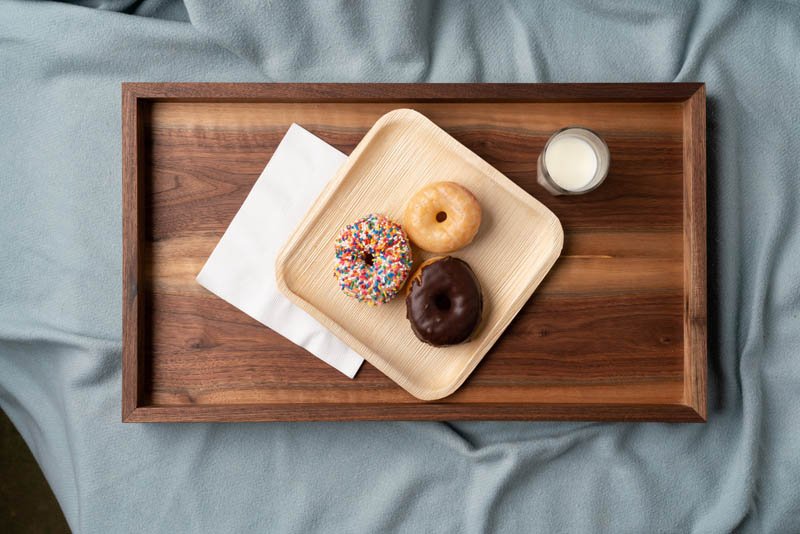Outdoor Wood Furniture Alternatives : Teak and Other Tropical Wood Dilemma
We are often asked to quote our products in teak for outdoor applications. My answer is simply that isn't out brand promise. We make furniture from locally salvaged urban wood. Teak is an import, so it doesn't fit our product offerings.
But besides that, why not?
Teak is near endangered due to over-cutting and deforestation. Teak consumption has also led to the disappearance of rare old-growth teak. Over exploitation has resulted in deforestation which in turn has caused massive floods in the region causing hundreds of deaths in recent years. Damage to the environment is incalculable. Teak from Myanmar and teak furniture from Thailand are associated with human rights violations.
New teak doesn't have the qualities of the old growth teak, desired for it's long lasting durability outside.
Even Teak requires proper maintenance to preserve its resistance to rot, termites, and acids. There is no wood that does not require maintenance outside especially, but anywhere there is sunlight or changes in climate.
Since teak is naturally slow growing and not as easy to harvest as other timbers. There has been an influx of alternate teak products, but most are still tropical imports and have the same detrimental effect on local and global environments. Most all tropical hardwoods come from old-growth rainforests, which are home to unique biodiversity. Logging these rainforests is unsustainable. It takes hundreds of years for forests to regenerate. Tropical wood is also heavy and dense, which means it's transported long distances, first cutting roads through said forests, then on diesel-powered ships, contributing to carbon emissions.
An example is ipe. Mature Ipe trees only occur once every 7 to 25 acres. To get to these mature trees, large portions of rainforest trees are cleared for roads, harvesting equipment, and the area around each tree, resulting in critical habitat loss and timber waste. According to the Washington Post "Today, massive demand for the threatened wood, also known as Brazilian walnut, is driving illegal deforestation, the scientists write. “Legality does not insure sustainability,” they write. But understanding how ipê is illegally logged and “laundered,” they write, could spur policy reforms and consumer awareness." Or read about it on the Greenpeace website.
Monkey pod, or Raintree or Acacia, is native to southern Mexico and Guatemala and is found southwards through Peru, Bolivia, and Brazil. It has been introduced in other tropical regions worldwide, including the Philippines, India and Fiji. Monkeypod is considered a sustainable hardwood, grown in tropical regions, as long as it's harvested responsibly. The impact of transportation can be significant, depending on the distance it has to travel for fabrication and to it's final home as a finished product.
Monkeypod has become popular for large live edge slab tables. There are so many domestic options in the United States for these slabs, including salvaged urban wood, we encourage homeowners and interior designers to pursue local sources before importing tropical wood.
But, back to exterior applications...
The three most widely available and suitable exterior soft wood lumber choices, not treated with chemical preservatives, include Western red cedar, redwood, and cypress. Your geographic location will determine the availability and cost of these materials. Redwood, for example, is widely available and used in the western United States. Western red cedar is commonly sold in the Midwest, and Eastern cypress, which grows throughout the South and Southeast.
White oak, the "whiskey barrel" wood, differs from red oak in that it is "closed grain" and much less porous. Moisture can't wick up its end grain. Super-strong, white oak features stainable, straight-grained wood with heartwood that resists decay. Any closed grain wood is better than open grain for exposure to water—for any item, such as a cutting board.
Reduced need for maintenance does not mean regular care won't extend the life of furnishings or improve the appearance. All and ANY wood outside wood requires AT LEAST minimal maintenance, such as regular cleaning and occasional resealing with a weather-resistant sealant.
Most domestic wood species with the proper sealant and maintenance can last as long as long as tropical woods outside without the damage of importing tropical wood.
To drive the point home, sealing, environmental conditions and maintenance are more important than wood species. Buy domestic wood. Try urban wood.
See Our Outdoor Furniture Maintenance Tips



